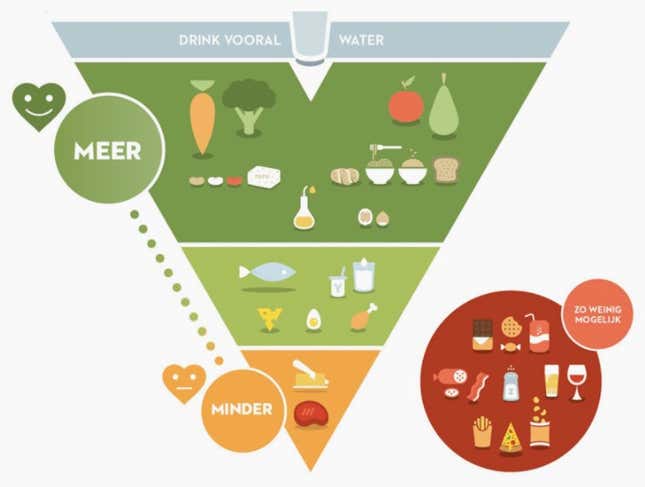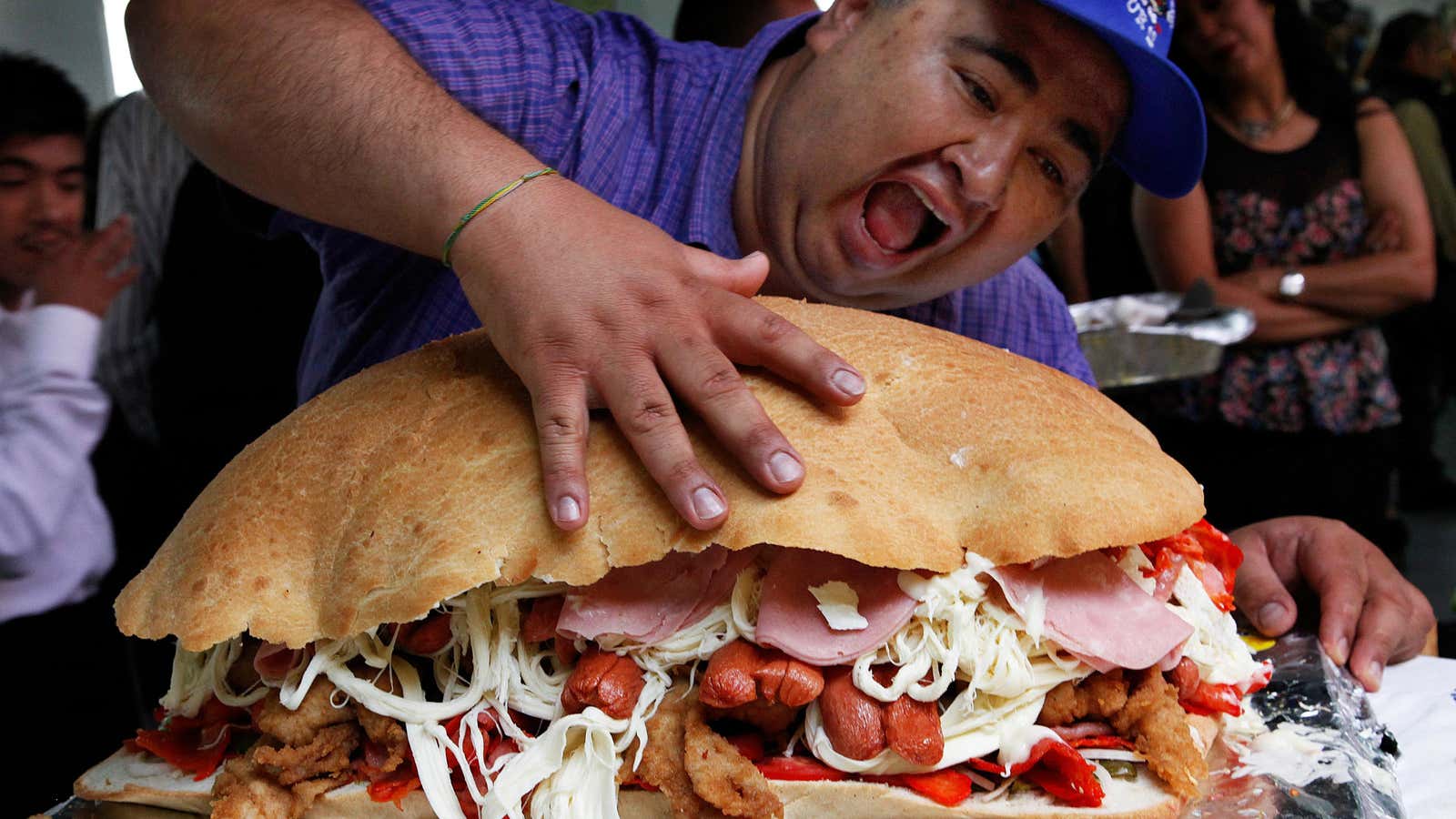There’s something a bit radical about Belgium’s new food pyramid.
Water, fruits, vegetables, tofu, and noodles get top billing—and steak sits at the bottom of the graphic. Bacon, pepperoni, and other deli meats don’t make it onto the pyramid at all; instead they’ve been relegated to a small circle, sentenced to sit (in Flemish) next to soft drinks, cookies, pizza, and French fries. Belgians have been advised to eat those foods, “as little as possible.”

It’s a noteworthy move for the Flemish Institute of Healthy Life, which released the graphic Sept. 19. Since 2015, the global meat industry has been pushing back against a World Health Organization announcement that classified processed meats as possibly carcinogenic (pdf) to humans. In the US, meat industry groups recently lobbied heavily to stop the government from advising people to eat less meat. They were successful.
Belgian policymakers appear ready to maintain a staunch defense for their decision.
“We want to make it clear that we don’t need these products,” a representative of the institute told Flanders Today. “We don’t forbid them, but they should be rather an exception than rule.”
Global health experts have targeted sodium as a nutrient of particular concern. That’s because excess dietary sodium has been linked to increased risk of several health problems, including hypertension, heart disease, and stomach cancer.
Most of the sodium we eat comes from processed foods such as potato chips, salad dressings, and frozen meals. Some of the multinational companies that make those foods have have embraced the chance to reformulate products, but others have resisted calls to reduce the amount of sodium they use. Another vehicle for that sodium are processed meats—think burgers, pepperoni on pizza, and deli meat. That’s one reason those foods have been shoved off into the circular life raft floating outside the new Belgian pyramid.
In the US, the government actually now uses a dinner plate graphic rather than a pyramid. It doesn’t call out individual foods by name. It recommends that about 25% of your daily diet come from proteins, but doesn’t offer much in the way of specific suggestions. In Hungary, the food pyramid is depicted as a “food house,” and is equally vague about meat consumption recommendations.
The Belgian government seems to like the pyramid format. They also recently released a novel second pyramid designed to guide the country towards recommended physical activity.
